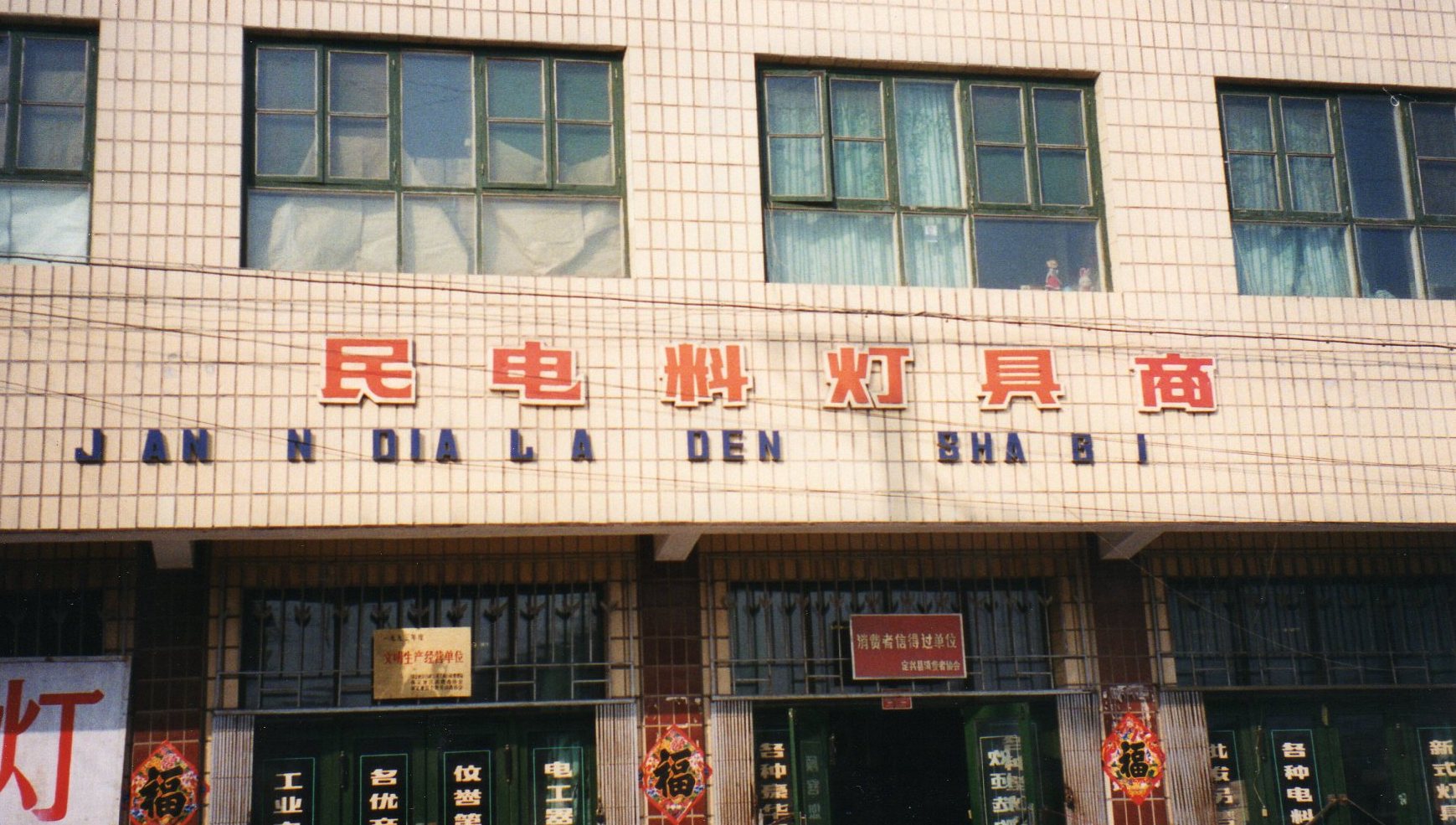
Another irreverent exploration of the wonders of the Chinese language:
At least until it caught on as an input method for texting, the pinyin system of transliteration was slow to catch on in China, certainly in the countryside. I took this mystifying picture of a shopfront in Dingxing county (Hebei) in 1995, as a little interlude between hanging out with ritual specialists, filming rituals, and photographing—aww, you guessed it—ritual manuals.
It’s actually an electrical and lighting store—the relevance of this only transpires gradually, since such tenuous relations as the notional pinyin may bear to the Chinese characters above it are only intermittent and haphazard. On closer inspection, some of the letters (indeed, a couple of characters too) have dropped off (as in the classic “His R’s fell off”).
Interpreting ancient literature can be like that—I think, for instance, of the labours of Sir Harold Bailey in deciphering fragmentary medieval texts excavated from Khotan. So perhaps this is where a certain sinological training comes in handy. *
The cryptic motto begins to make more sense when we add speculative punctuation—evoking two aspiring young Cali actors (let’s dispense with “actresses“) embarking on a Bollywood-themed club night (a text alerting the paparazzi, perhaps):
Jan ‘n’ Dia—L.A. den “Bhabi!”
Or is it even an invitation to anagrams?
Dahlia nabbed ninja
A banal jihad binned
Albania Hadj bin-end
I should’ve gone to Specsavers, but as I pondered the sign in a desperate search for meaning, the reason I took the photo was that I misread the final word as SHABI, “fuckwit”—actually a very popular expression that is considerably less shocking in Chinese than its literal meaning of “stupid cunt”. Anyway, I still like to think that SHABI is what it says.
Upon mature [sic] reflection, I strongly suspect that was indeed closer to the effect they were aiming for. If we posit a missing final character dian 店, then the last two words would be SHANG DIAN (“shop”), but either they couldn’t tell the difference between their stock of S, B, and D letters, or they just didn’t have enough of them—you know, the old fridge-magnet dilemma. Anyway, with superfluous letters suitably discarded, it really could emerge triumphantly as SHABI.
While my suggestions for the fragment may be poetic, the erudite Victor Mair on Language Log has reconstructed the original text:
Dìngxìng xiàn jiànmín diànliào dēngjù shāngdiàn
定兴县建民电料灯具商店
Dingxing County Jianmin Electrical Materials and Lighting Store,
and he even found it at no.21 in this list!

Pingback: Yet more Chinese wordplay | Stephen Jones: a blog
Pingback: Changing language | Stephen Jones: a blog
Pingback: Forms of address | Stephen Jones: a blog
Pingback: Jeux d’esprit | Stephen Jones: a blog
Pingback: The joys of indexing | Stephen Jones: a blog
Pingback: Language learning: a roundup | Stephen Jones: a blog
Pingback: The c-word | Stephen Jones: a blog
Pingback: Towers and wells—and a ferocious quadruped | Stephen Jones: a blog